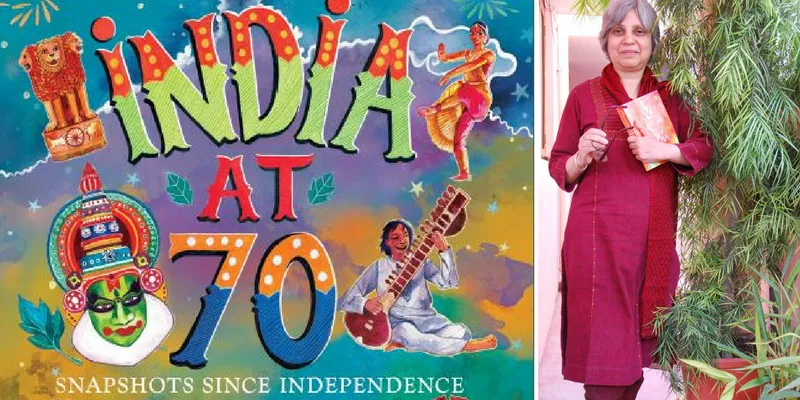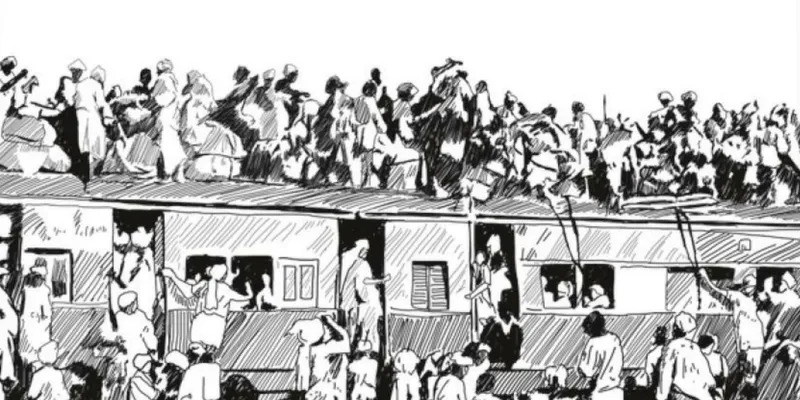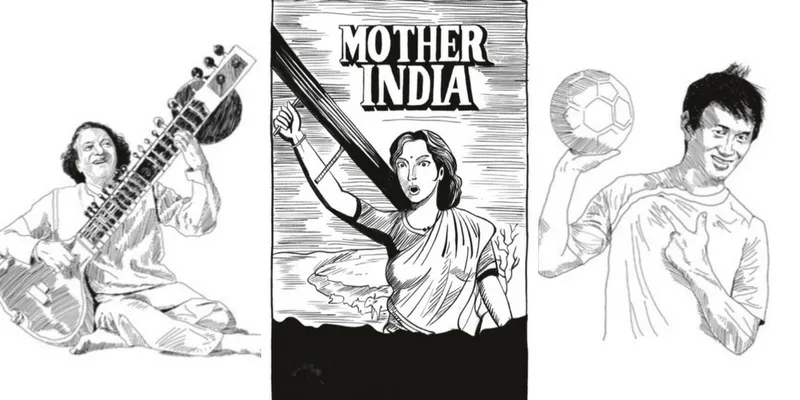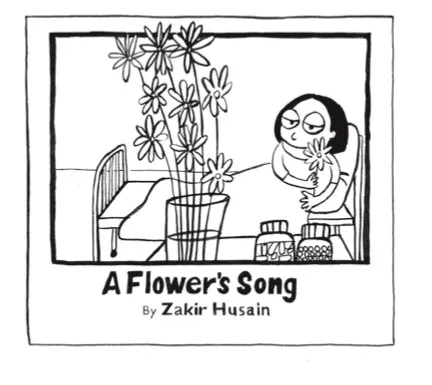Youngsters get a chance to revisit diverse narratives of India captured in 71 snapshots
Chronicling new media, old and present types of literature, art, music, dance, food and more, Roshen Dalal’s ‘India at 70: Snapshots Since Independence’ stands out as a reflection of the happenings that shaped the India of 2017.

With an aim to engage youngsters born in independent India with tales spinning around seven decades of India since partition, Roshen Dalal authored India at 70: Snapshots Since Independence. Chronicling cinema, literature, music, dance and art forms, rather than just the political upheavals and economic reforms of the 1990s, the book stands out as a complete reflection of the happenings in India that shaped the country it is today.
My aim, beginning with this book, is to write a different kind of history, which integrates various aspects of the past, including ecology and culture. Cinema, music, literature, art, and other aspects of culture reflect important landmarks in history. It also provides the essence of the country, the concerns and thoughts of the people, Roshen explains.
Partition needs to be remembered

The India of today boasts of conquering the space with Mangalyaan and making a mark in international sports. The progress graph of the country since Independence can be credited largely to the functioning democracy India has achieved on the basis of the Constitution, which advocated for a secular, liberal, and equal country.
However, Roshen believes that the watershed moment of the country was the partition that accompanied Independence in 1947.
Partition was a great loss. One can only imagine the strength of an undivided and united India. Money and men would not be lost in the border conflicts with Pakistan and occasional skirmishes with Bangladesh. Kashmir might have been a peaceful place, the economy would be better, and sports teams would be stronger. However, one has to accept that there are now three countries instead of one, and it is in the interests of all three to maintain peace and good relations.
For a brighter tomorrow, one needs to revisit the past objectively and understand how the 21st century India and the decisions that impact the 1.3 billion citizens can be shaped better. “Either glorifying or denigrating any aspect of the past is pointless, as it does not lead to a better today,” she adds.
Youth’s guide to Indian history

India’s rich history fails to be attractive for the youth. Often, either the diverse colours of the nation fail to get captured in the popular narrative or the spoken stories remains shut in school textbooks. Hence, Roshen’s India at 70 emerges as a fresh book that captivates the country's past, yearly in individual short chapters.
“There are so many stories of all the wonderful people of the past and present. Many, such as Rukmini Devi, Baba Amte, Sadhu Vaswani, Annapurna Devi, find a place in this book, but there are so many more. Within this book, I think I find the story of Annapurna Devi and her sister, Jahanara, their father, Allauddin Khan, and other musicians associated with him, among the most memorable and haunting, while that of Rukmini Devi is extraordinarily inspiring,” Roshen recalls.
Further, the book attempts to immortalise ordinary people who have contributed to the growth witnessed by this nation and whose names fail to get recognised in other platforms.
I feel the common, ordinary people of India, their stories and their ideas should form a large part of history books. There are books and research in the category subaltern studies, but their work is usually not incorporated in general histories, she adds.
Vision for India

Born in post-independent India, 1952, Roshen has experienced the shifting history as it was made. One cannot define India in definite terms for its colourful and diverse narratives shift even as an individual moves within a 20-mile radius. People belonging to different regions, caste, creed, colour and sex have respected one another’s diversities and co-existed for centuries. Social and economic change can destabilise the equilibrium, but Roshen explains that it is the responsibility of each of us to maintain peace.
I would love to see an India where there is peace and harmony among all castes and communities, where water, electricity, healthcare, education and roads have reached the smallest village. I wish there was more support for farmers and agriculture, for labourers and domestic workers. India has strong cultural roots, and citizens should not be afraid of influences from other countries and cultures. We cannot return to the past, and insularity will not help us.
With India At 70, we hope that this vision of India translates into practice and the youth of India gain a rich experience of the various flavours that helped to constitute the India of the 21st century.
Enter the SocialStory Photography contest and show us how people are changing the world! Win prize money worth Rs 1 lakh and more. Click here for details!







